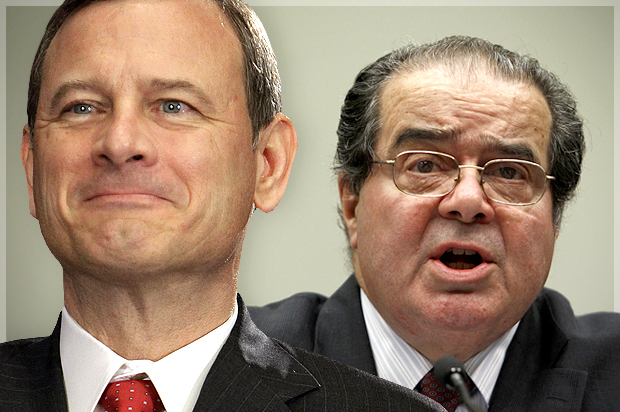There is a case heading to the Supreme Court this term that threatens to muzzle workers and further entrench staggering levels of economic inequality in our country, tipping the scales even further in the direction of corporate CEOs and wealthy special interests.
The case, Friedrichs v. CTA, is ostensibly about one teacher’s right to not join her teachers union, but that choice is already available to any worker everywhere in America. This case is really just another attack on workers’ ability to join together and make their voices heard.
The case originated with Rebecca Friedrichs, a teacher in Orange County, California. Friedrichs, and the other plaintiffs, want the court to overturn the decision in Abood v. Detroit Board of Education, the 1977 Supreme Court decision that allows unions to collect fair-share or agency fees from all employees to cover the costs of negotiating wages, benefits and working conditions that benefit all union members and non-members alike.
The true force behind the case is the Center for Individual Rights, a group that has driven it on a frenzied course through the legal system since filing suit in the district court in April 2013. The group, funded by the Koch brothers and others determined to continue manipulating the rules of our economy — and our democracy — fast-tracked the case through the district and 9th circuit courts to bring it to Chief Justice Roberts’ Supreme Court, which will hear oral arguments on Monday.
We all benefit when worker’s voices are heard on the job. Not only has employee bargaining created better working hours and standards — recall the famous bumper sticker: “Labor: the folks who brought you the weekend” — it has also allowed Americans to retire with dignity, and to stand up for smaller classes, better-staffed hospitals, faster response times in emergencies. Those are all benefits that accrue to every American, making our communities stronger.
We want our firefighters, policemen and nurses to be able to focus on the important jobs they carry out every day — the jobs that keep our communities safe. In order for them to do that, they need unions to secure good workplace standards, good training and good wages that can sustain their families.
Workers’ ability to speak up for those conditions have led to better workplaces for all Americans.In particular, women, people of color, and LGBT people benefit from union representation, enjoying greater basic benefits like parental leave and stronger protections against
And that is what’s at stake in this case: Corporate CEOs know that the ability to come together and speak in one voice is workers’ best tool to advocate for economic justice and workplace fairness. After launching successful efforts to push extreme anti-union policies through state legislatures, big money conservatives are using the courts to come after workers’ right to join together.
Those are not the people we want writing the rules of our workplaces. Those are not the people we want dictating the workplace rights of our teachers, nurses, social workers and librarians. Political and economic inequality is bad enough in our country without American workers losing crucial tools that allow them to stand up for themselves and their communities.
The groups pushing this case claim that unions force members to contribute to political candidates or causes they don’t support and that this case will help guard against that. That’s untrue on multiple levels. First, it’s already illegal to force any worker to contribute to union political spending. Second, that type of political spending is not even at issue in this case.
The fees at issue here don’t pay for any kind of political activity. These fees support the employee bargaining that helps create the safe and secure workplace conditions people deserve. Those conditions benefit everyone working in an office or factory or fire station, not just the union members.
No worker is required to join a union, but unions are required to represent everyone in the workplace, and everyone in the workplace benefits from the wages, benefits and other protections negotiated by the union. Everyone benefits, so it’s only fair that everyone pays their fair share.
These days, Americans are working harder and harder just to get by while the dream of getting ahead slips away. Now, they are seeing their ability to even strive for a better future attacked by the people at the very top of the economic food chain.
Everyone who works hard should be able to make ends meet, have a say about their futures and the right to negotiate together for better wages and benefits. As the late Senator Paul Wellstone so aptly put it: “We all do better when we all do better.” We all deserve an equal say in our democracy, and an equal chance in our economy.
The Supreme Court should refuse this invitation to overrule it’s own settled law by declaring that the labor-management relationships entrenched for decades in states across the country are suddenly unconstitutional. Instead of making it harder for American workers, let’s do better for the people who form the backbones of our communities.
Liz Kennedy is counsel and campaign strategist at Demos.

